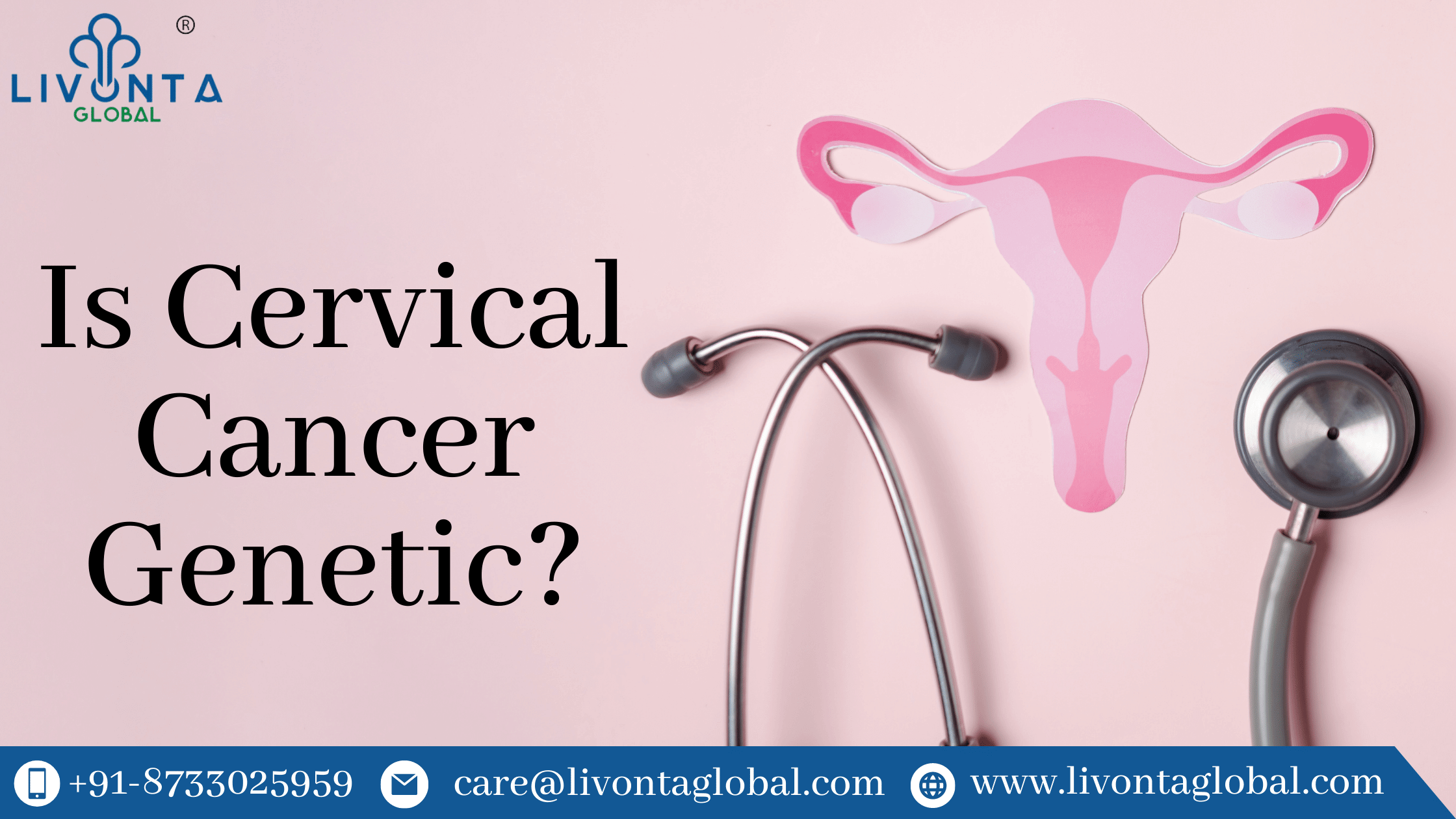
Is Cervical Cancer Genetic?
Cervical cancer used to be one of the leading causes of death for women. Today’s medical professionals from the best cancer treatment hospitals in India can identify and treat cervical cancer if the diagnosis is made timely.
Precancerous cells in the cervix can be found and removed by doctors with the use of Pap tests before cervical cancer even arises. Understanding your risk for cervical cancer and getting frequent screenings are crucial for preventing the disease. The cancer hospitals in India have all the facilities for the latest medical diagnosis.
Having a mother or sister who has had cervical cancer is one factor that can raise your risk of developing the disease. Cervical cancer, on the other hand, rarely runs in families. Instead, families generally share similar risk variables because of common home experiences.
What Genetic Factors Increase the Risk of Cervical Cancer?
The majority of occurrences of cervical cancer are brought on by particular strains of the human papillomavirus (HPV), which are acquired through sexual interaction rather than by inherited genetic factors. Squamous cell carcinoma and adenocarcinoma, the two most prevalent cancer types, are not inherited.
Two known, uncommon hereditary risk factors for cervical cancer exist, though:
The STK11/LKB1 gene mutation that results in Peutz-Jeghers syndrome, sometimes known as PJS, raises the risk of cervical cancer and other malignancies.
Although it’s rare, DICER1 gene damage can raise the chance of developing the cervical cancer variant of embryonal rhabdomyosarcoma.
It’s crucial to remember that the majority of cases of cervical cancer are not genetically caused, and these genetic abnormalities are quite uncommon and have a very low incidence. The HPV vaccine, safe sex, and routine cervical cancer screenings are the greatest ways to lower your chance of acquiring cervical cancer.
Despite the fact that hereditary susceptibility is not a factor in the majority of occurrences of cervical cancer, women who have a mother or sister who has had the disease are nevertheless more likely to have it themselves. This might be connected to a hereditary predisposition to persistent HPV infection. Epidemiologists, however, think that environmental variables or other non-genetic risk factors are more likely to be involved.
Overlapping family risk factors
Researchers think that women from similar families are more likely to have overlapping risk factors that aren’t genetic.
For instance, there is a higher risk of cervical cancer in women whose mothers received the medication diethylstilbestrol (DES) to prevent miscarriage during pregnancy. Between 1940 and 1970, DES was widely used, and it is conceivable that two sisters might share this risk factor.
In general, it’s rare that a mother would give her daughter cervical cancer. A genetic test can offer insight if you’re worried that cervical cancer might run in your family. It can reveal whether you possess either of the genes linked to uncommon forms of cervical cancer.
Additional risk factors
Immune system impairment – A compromised immune response is dangerous since your immune system is what causes HPV to regress. Long-lasting HPV infections and cervical cancer are more likely to occur in women whose immune systems have been compromised by HIV infection, cancer therapy, immune-suppressing medications, or other factors.
Smoking- Smoking exposes your entire body to toxins, which doubles your chance of cervical cancer despite the fact that it is typical to link smoking with lung cancer. You can quit and reduce those odds with the aid of your primary care physician.
Past pregnancies – Women who had their first child before turning 20 and those who had several pregnancies that were carried to term are at higher risk. The causes of this elevated risk are unclear, but they may be linked to cellular changes brought on by childbirth, hormonal changes during pregnancy, and an increased prevalence of HPV among pregnant women.
Long-term use of contraception – Constant usage of birth control raises the risk of breast and cervical cancer. Women who have used birth control for more than ten years are at the greatest risk, according to the American Cancer Society. After stopping birth control, that risk starts to decrease.
Cancer Treatment
